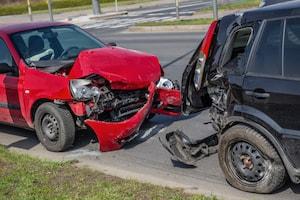121 S. Wilke Road, Suite 301, Arlington Heights, IL 60005
Home and Hospital Visits for Your Convenience
Serving Clients Across 7 Illinois Locations
Can Rear-End Collision Injuries Cause Chronic Health Problems?

In many cases, when someone has been involved in an auto accident and emerged from the collision seemingly unscathed, they usually thank their lucky stars that the crash was not more serious. After minor fender benders, it is not uncommon for victims to say, “It could have been much worse.” While this may be true in some circumstances, the reality is what we consider even the most minor car accident can, and often does, cause significant damage to our quality of life over time. These lesser injuries, while not life-threatening, still run the risk of causing chronic, ongoing health issues. This is especially true when it comes to rear-end collisions, due to the direction and point of impact. In some cases, the injuries result in a person not being able to work.
Types of Injuries Sustained in Rear-End Crashes
There are certain injuries that drivers or passengers typically sustain if involved in a rear-end collision due to the location of the impact and, in some cases, the speed. Below are three injuries that can have lasting and sometimes debilitating effects:
-
Hamstring Injury: Muscle pulls and strains of all kinds are pretty much guaranteed in an auto accident. Hamstring injuries, which run along the muscle groups in the back of the thighs, are very common. Just as athletes who play sports such as soccer or track are at risk for hamstring injuries due to abrupt stops, so are rear-end crash victims, who suddenly jerk and brace themselves during unexpected impact.
-
Whiplash: The term “whiplash,” which refers to an injury of the neck, is perhaps one of the most talked-about rear-end collision injuries. This is a soft tissue injury that results from sudden extension and flexion of the neck muscles. An array of symptoms characterizes this condition, including dizziness, headache, back and shoulder pain, and muscle stiffness. Whiplash can be temporary, but it can also cause long-term problems, such as cognitive memory loss, inability to concentrate, and nerve damage, due to trauma to various nerve roots.
-
Sciatica: A symptom of a compressed nerve in the lower spine, sciatica commonly surfaces after a victim has been rear-ended in an accident. A herniated disc can be a trigger for sciatica, for example. The sciatic nerve, which is the longest nerve in the human body, can cause great discomfort when damaged. A victim may experience numbness in the leg, a tingling sensation in the feet or toes, or mild to severe pain in the lower back, buttocks, or back of the legs.
Contact a Rolling Meadows Personal Injury Lawyer
While some injuries suffered in an auto accident may heal completely after a short period of time, they also have the potential to linger for months or years to come. Therefore, a victim should seek compensation for medical costs and lost wages. If you have been involved in a rear end collision, it is important to understand your rights and arm yourself with the confidence you need to take a proactive step in protecting your health. Speak to a knowledgeable Arlington Heights car accident attorney today. Call Newland & Newland, LLP at 847-797-8000 to schedule a free phone consultation.
Sources:
https://www.medicalnewstoday.com/articles/7619.php
https://www.mayoclinic.org/diseases-conditions/hamstring-injury/symptoms-causes/syc-20372985
https://www.ninds.nih.gov/Disorders/All-Disorders/Whiplash-Information-Page

 Spanish
Spanish


















